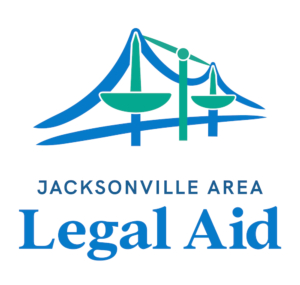
The information provided below (PDF document) is not a substitute for legal advice.
The laws described here may change without notice.
Last updated 2/06/2022
I am Being Evicted and Need Help!
Emergency Rental Assistance
The CDC Eviction Moratorium Ended – What Are My Rights?
The CDC Order declaring a moratorium on most evictions to prevent the spread of COVID-19 was terminated by the U.S. Supreme Court on August 26, 2021. There are very few protections for tenants facing eviction.
What must a landlord do in order to evict a tenant legally for nonpayment of rent?
- A landlord is prohibited from using “self-help” measures to evict a tenant.
- To legally evict a tenant, a landlord must send all required notices, file an eviction lawsuit in court, get a court order permitting eviction, and then request a sheriff’s eviction if the tenant doesn’t voluntarily vacate. A landlord cannot evict a tenant without a court order.
- Within 5 business days after being served the summons and lawsuit, a tenant must: 1) file a response to the lawsuit, and 2) deposit into the court registry all unpaid rent or file a motion to determine rent.
- Tips: Go to floridaevictionhelp.org for assistance drafting a response to an eviction lawsuit. If you have an application for rent assistance pending, notify the court in writing and attach proof.
My landlord sued me during the pandemic and the court stayed the eviction. What happens now?
- The court might set a status hearing to inquire about your circumstances;
- The court might require you to deposit all unpaid rent into the registry to avoid an eviction judgment;
- The court might set your case for a final hearing to determine whether you still owe any rent; or
- The landlord might file a motion requesting a “default judgment” for failure to deposit all unpaid rent.
- If you have an application for rent assistance pending, notify the court in writing and attach proof.
I’m still behind on the rent, what are my options?
- If you are a tenant who can’t pay the rent, ask your landlord to give you more time to pay your rent.
- For your protection, get any agreement with the landlord in writing. Do not sign the agreement unless you understand everything in the agreement.
- When negotiating a payment plan, make sure the agreement includes:
- The date(s) and amount(s) of all the payments needed to bring your account to a zero balance;
- Whether the payment plan includes the rent that will become due during the payment plan;
- What will happen if you miss a payment; and
- A promise from your landlord that it will not take further legal action against you.
- If your landlord has a multifamily Fannie/Freddie mortgage in forbearance, the landlord might not be able to evict you yet. It is required to notify you in writing of your rights during, and after, the forbearance.
- If you live in certain federally subsidized rental properties, your landlord may be required to give you 30-day notice before filing an eviction lawsuit.
Where can I locate rental assistance?
- Contact the United Way at 211. Search the CFPB rent assistance tool at: consumerfinance.gov/renthelp.
- Apply for statewide emergency rent assistance at: https://www.ourflorida.com.
______________________________________________________________________________
This fact sheet is for general education only. It is not intended to be used to solve individual problems.
If you have specific questions, contact a lawyer.



